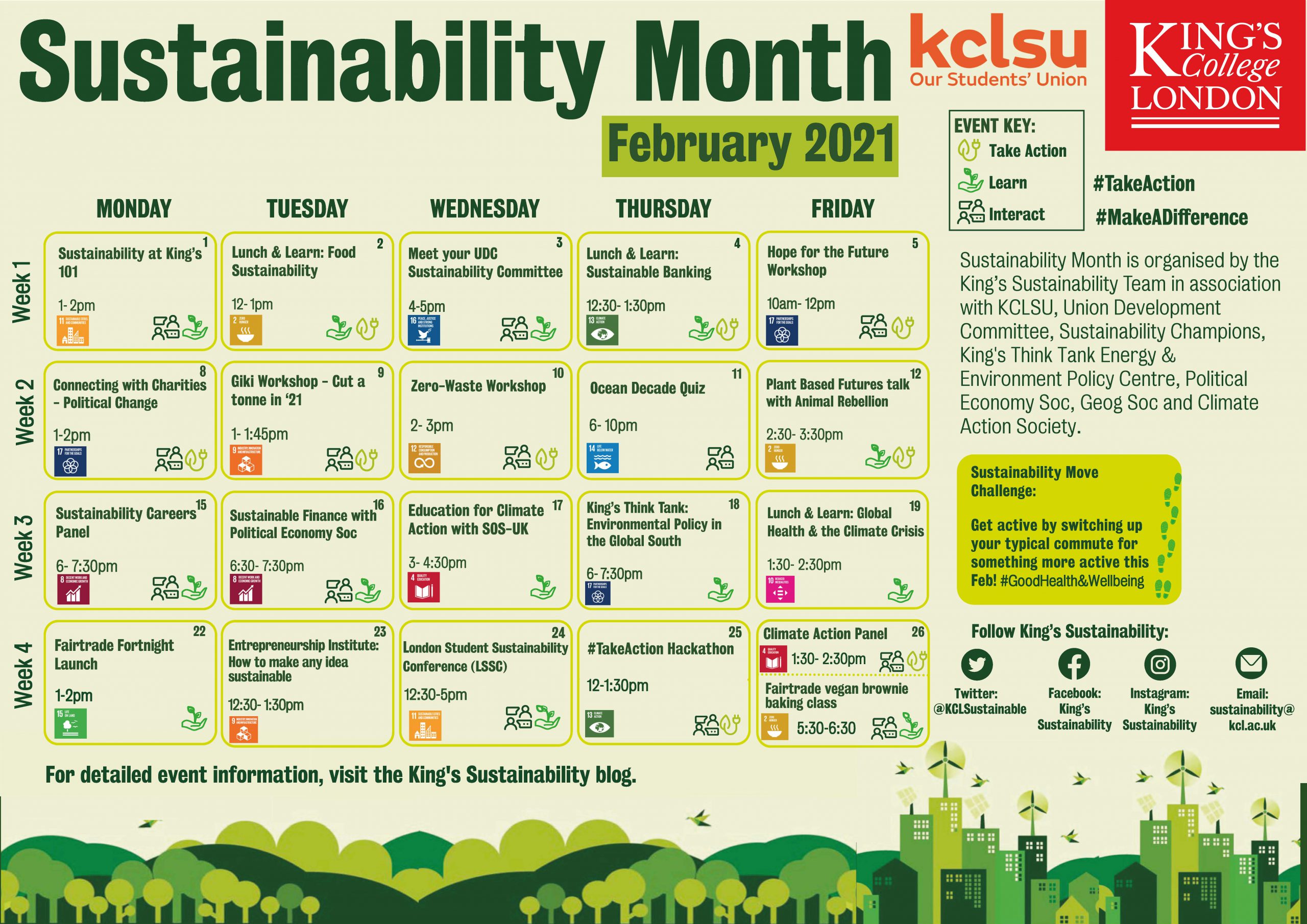This guest blog comes from Rebecca Lindsay, BA Philosophy and Spanish student and Sustainability Champion Assistants (SCA), supporting the King’s Energy Team.
The world of energy often feels like a world of jargon. Emissions, baselines, decarbonisation – what does it all actually mean?
In the most basic terms, energy is “the ability to do work.” So when we talk about energy, we’re talking about electricity, gas, diesel and other types of power. King’s energy is also responsible for managing King’s water usage.
When reducing your carbon emissions, it’s important to consider energy efficiency. Essentially, the more efficient an appliance is, the less energy it uses to do the same amount of work. Energy = Power x Time. Some quick GCSE physics revision for you there!
But higher energy usage doesn’t always mean less efficient. It’s also important to change where we get our energy from – to decarbonise. Decarbonisation, simply put, aims to reduce our economy’s reliance on carbon and fossil fuels. Solar, wind and hydropower are all examples of renewable alternatives.
There are lots of benefits to switching to renewable energy sources – not just for your bank account! Here are just a few:
- It creates more jobs.
- It diversifies energy sources, meaning less importing and a stronger economy.
- It’s cheaper! Carbon is a finite resource and increasingly expensive, whereas renewable energy is more widely available.
- Most importantly, it reduces our impact on the planet and helps slow global warming.
Long story short: save money, save the planet.
How to we use energy at King’s?
As a research-heavy university, we use a lot of energy. So it’s up to us to be responsible with where we get it from.
Our shift to renewables is well under way. Since October 2017, all electricity directly purchased by King’s has come from 100% UK wind energy.
Both Great Dover Street Apartments and Champion Hill, two of King’s residences, have solar panels. Not only saving money, but also reducing our impact on the planet.
In Autumn 2019, King’s was one of 20 universities to sign a Power Purchase Agreement (PPA) with onshore wind farms in Scotland and Wales, the first deal of its kind in the country!
Universities also make lots of investments, often in fossil fuels. King’s, however, has committed to divest from all fossil fuels by the end of 2022, and to invest 40% of its funds in investments with socially responsible benefits by 2025.
We’re also developing a Climate Action Strategy alongside the King’s Climate Action Network to reach net-zero carbon emissions by 2025.
As you can see, there’s lots to be done. With target deadlines fast approaching, the emphasis on clean energy has never been greater. It’s a great time to get involved! For information on how to support us, email us over at energy@kcl.ac.uk.


